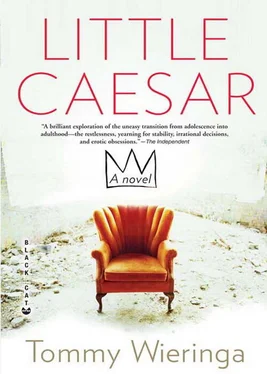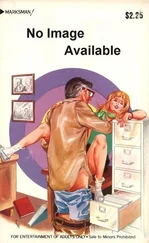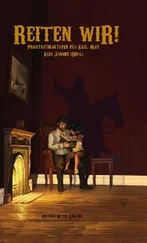I went to the library and looked up the man whose picture was on the card. I found Blas de Lezo in a number of places, but most useful of all to me was a book entitled The War of Jenkins’ Ear . It dealt at length with Blas de Lezo y Olavarrieta — no pirate, but a Spanish naval hero who had fought from Sicily to Oran. In consecutive order he had lost a leg at Malaga, an eye at Toulon and an arm at Barcelona, and was therefore referred to as Mediohombre , the half-man. His statue stood in Cartagena, Colombia, because he had defended that city against the English admiral Vernon.
Vernon had tried to take Cartagena, the point of departure for the Spanish treasure fleets, with one hundred and eighty-six warships, with two thousand cannons and an army of twenty-four thousand men. Blas de Lezo defended the town with only three thousand soldiers, a couple of hundred Indian archers and a handful of frigates. It was one of those battles that captures the imagination, in which what would seem to be a hopelessly outnumbered band of men defeats an over-whelming army. Blas de Lezo, however, paid for his victory with his life.
I detected no real meaning in it, in the name Mediohombre . The half-man was simply a half-man on a postcard, plucked by Bodo Schultz from a rack in Cartagena to send to his son in England. Behind the hero of Cartagena one could make out a dark old fortress, a wall, the roundels. On the wall a slender metal cross. What was my father doing in Colombia? What wind drove the restless waves?
The face with which he had until then occupied my fantasies, that of a janitor at the Schutz American School in Alexandria, was replaced by that of a Spanish naval hero who, judging from his portrait in copper, had a prominent lower jaw and fleshy lips that pouted angrily.
In my imagination, my father and I never looked alike. I was my mother’s child, as confirmed when I was little by shop girls and little old ladies on the beach who always tousled my hair and said what a handsome little fellow I was.
I don’t know whether my mother was aware of the connection between the postcard and the end of our makeup sessions. Sometimes she tried to lure me in.
‘Oh, come on, just for me, just one more time?’
One winter evening, the house fat and round with the smell of wood smoke and cooking, I let myself be drawn in. One more time, as she’d asked, because I longed for the intimacy between us, which had never been more powerful than when she was doing my face. It smelled so lovely, so heavy, in that shadow chamber of hers, where she slept on a raised bed amid an ocean of pillows. Feathery light veils hung from the ceiling — the holy of holies, shielded from the eyes of the impure. Her atmosphere settled over me like a voile, her smell crept into my nostrils and made my knees weak. She studied my face intently in the glow of the lights on her vanity table.
‘You’ll have to start shaving soon,’ she said. ‘A little reddish, it looks.’
She applied a layer of foundation cream.
‘But your complexion is perfect. You have my skin.’
She had the skin of a young girl. Old skin has no light, it doesn’t reflect it the way a young, tanned complexion will, but absorbs it. Old skin sucks up light the way a wall sucks up basecoat. You can tailor away wrinkles and folds, vacuum away fat and shoot yourself full of Botox, but the gleam of young skin cannot be imitated.
She picked up a brush and tapped it against her hand, the silken soft bristles slid over my face. It was waxen and pale now, a porcelain doll. With steady hand she drew lines beneath my eyes, her breath brushed my cheek. A message blinked on and off like a dying neon light inside my skull — LOVE ME LOVE ME. The mascara brush stroked my lashes, she held her face close to mine and smiled. To my lips she applied Chanel, the bright red lipstick she sometimes wore when she left the house.
A little later, as I was jerking off in the bathroom — Caesarion Philometor — I caught an involuntary glimpse of my own face in the mirror above the sink, just as I reached orgasm, my feminine, corpse-pale likeness, and was overcome by a feeling of such horror and filth that I had to close my eyes to myself.
That next Wednesday evening I went to the field where the rugby club held its practise sessions. It was dark and cold, but the little wooden clubhouse was warm. Out on the field men and boys were tossing a ball back and forth. A tall mast cast out nets of light over them, beyond that was the darkness. From a changing room at the side of the clubhouse came a big man, who asked what I was doing there.
‘Coming to see whether I like it,’ I said, ‘rugby.’
‘Have you got gear with you?’
‘No.’
‘Next time bring your gear,’ he said.
He jogged out onto the field. The training started, they ran laps. Standing at the edge of the dome of light, I watched them. Plumes of white steam came from their mouths and nostrils. A halo of steam hung round the head of one older, bald player. When they started running through their set moves, I soon lost track. After a while, though, I realized that you had to throw the ball behind you, preferably to a player in motion. I discerned two groups: the gang of tall, heavy men who together formed the scrum, and the faster attackers, who spread out across the field. I entered into conversation with another spectator, a boy on crutches. He was captain of the seconds, he had broken his shin during a match. His name was Michael Leland, call me Mike . He explained the basics of rugby. It seemed to me to be a sport of the clenched fist and the open hand — the fist symbolizing the clenched power of the forwards, the open hand the speed and agility of the three-quarters. It looked interesting and hard, it seemed to me fitting for the assignment I had given myself: to become a man.
I bought boots with metal studs, socks and a rugby shirt in yellow and black, the team colors of the Alburgh Rugby Football Club. Was I planning to play rugby? the old saleswoman at Fraser’s warehouse asked. Then I would also need a mouth guard, and shin guards and sports tape.
At home I dropped the mouth guard into a pan of boiling water and, while it was still soft and screeching hot, pressed it around my upper teeth. It felt like the enamel was shattering.
My mother tried to talk me out of it, she was afraid I would break my fingers and no longer be able to play the piano, but the very next Wednesday I went back to the clubhouse. I changed uneasily in the presence of strangers, in that cold changing room with its rampant outbursts of fungus, the brown rings on the ceiling and the odd hole in the wall. The smell was unfamiliar to me, but countless changing rooms would follow, and all of them smelled the same.
What I remember of that first training: biting cold, and the moment I found myself facing the man who had asked me last time where I’d left my gear. The top of my head reached his chest, I realized I needed to tackle him, and that meant: hit his upper legs hard with my shoulder and throw him to the ground — which I failed to do. I sort of hung on to the hem of his shirt till he shook me off casually and continued on his way to the try-line.
Not long after that I played my first match with the juniors, at wing, a position where I couldn’t do much harm. I heard a gray-haired cynic on the sideline say that the winger was the only spectator allowed to get involved in the match. For the time being, I showed no special talent for any other position. On my team was a boy named Selwyn, a god-given athlete who scored three tries that first day. He was a fly-half and a joy to watch. His body contained power; when he went in hard and low you could hear the opponent’s suffering. His tries were almost ruined by my clumsiness along the line; I let my own man pass on two occasions. I was still afraid of the clash, of bodies running at me, and clawed halfheartedly at shirts and shorts.
Читать дальше












